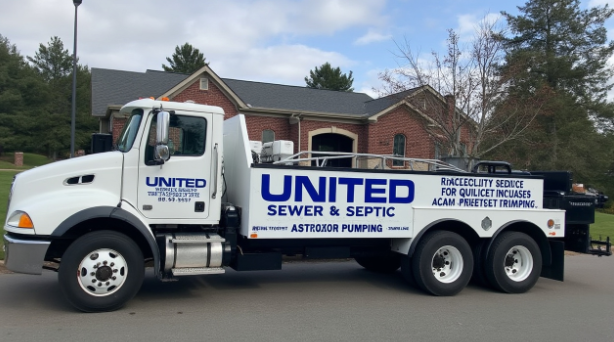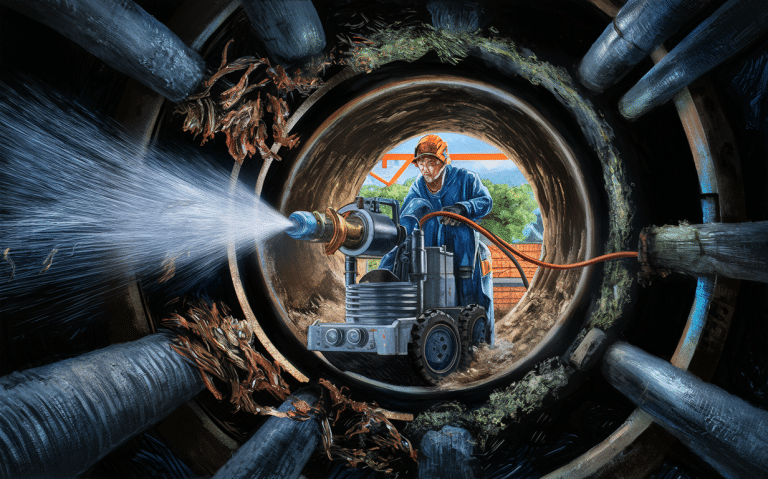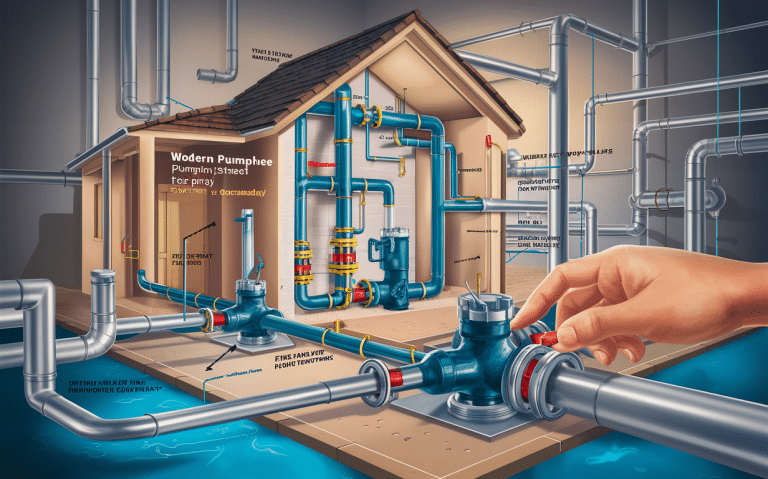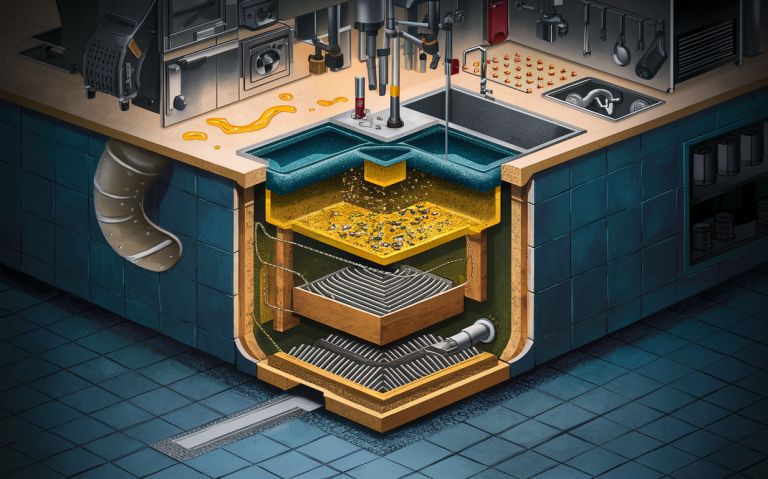Extending The Lifespan Of Your Septic System With Regular Pumping
Septic systems are essential for managing household wastewater, but they require regular maintenance to function correctly and last longer. By extending the lifespan of your septic system with regular pumping, homeowners can extend the lifespan of their septic systems, avoid costly repairs, and ensure a clean, efficient system.
Key Takeaway
- Regular septic system pumping removes accumulated solids, preventing system failures.
- Regular pumping maintains drain field health.
- Septic tank inspections and maintenance are vital for early problem detection.
- Proper waste disposal practices protect your septic system.
- Professional assistance ensures system efficiency.
Why Extending The Lifespan Of Your Septic System With Regular Pumping is Crucial
Regular pumping is vital to prevent sludge and scum layers from building up in your septic tank. Extending The Lifespan Of Your Septic System With Regular Pumping ensures that over time, these layers do not clog the system, leading to backups and costly repairs. Pumping removes these layers, ensuring your system continues to function smoothly.
The Science Behind Septic Systems

Septic systems rely on a delicate balance of bacteria to break down waste. When tanks become too full, the bacteria can’t keep up, leading to solids entering the drainfield and causing blockages. Extending The Lifespan Of Your Septic System With Regular Pumping ensures the bacteria can effectively manage the waste, keeping your system healthy. Regular pumping helps maintain this balance, preventing costly repairs and ensuring optimal performance.
How Often Should You Pump Your Septic Tank?
The frequency of pumping depends on various factors, including tank size, household size, and usage habits. Extending The Lifespan Of Your Septic System With Regular Pumping means that on average, septic tanks should be pumped every 3-5 years. However, larger households or heavy water usage may require more frequent pumping to prevent backups and maintain system efficiency. Regular maintenance is key to ensuring the longevity and reliability of your septic system.
| Household Size | Tank Size (gallons) | Pumping Frequency |
|---|---|---|
| 1-2 people | 1,000 | Every 5 years |
| 3-4 people | 1,000 | Every 3 years |
| 5-6 people | 1,500 | Every 3-4 years |
| 7+ people | 2,000 | Every 2-3 years |
Early Warning Signs of a Full Septic Tank

It’s essential to recognize the signs of a full septic tank to avoid system failures. Common indicators include slow drains, sewage backups, foul odors, and lush patches of grass over the drainfield. If you notice these signs, it’s time to schedule a pumping service immediately.
The Environmental Impact
Regular pumping not only protects your septic system but also the environment. Extending The Lifespan Of Your Septic System With Regular Pumping helps prevent a poorly maintained septic system from leaching harmful bacteria and nutrients into the soil and groundwater.
This contamination can affect local water sources and ecosystems, making regular maintenance essential for environmental protection. By keeping your septic system in good condition, you contribute to preserving the quality of your local environment.
What to Expect During a Pumping Service
When you schedule a pumping service, a professional will remove the tank’s cover and use a vacuum truck to extract the sludge and scum. They will also inspect the tank for any signs of damage or wear. This process ensures the tank is clean and ready for continued use.
Proper Waste Disposal Practices
To maintain a healthy septic system, it’s crucial to be mindful of what goes down your drains. Avoid flushing non-biodegradable items, chemicals, and excessive grease. Proper waste disposal reduces the strain on your septic system and extends its lifespan.
Role of Inspections in Septic Maintenance
Regular inspections complement pumping services by identifying potential issues before they become significant problems. Inspections can reveal leaks, root infiltration, and other damage that may not be apparent without a thorough examination.
DIY Maintenance Tips
While professional services are essential, homeowners can take simple steps to maintain their septic systems. This includes conserving water, using septic-safe products, and avoiding heavy machinery over the drain field. These practices reduce the strain on your system and help prevent damage.
Cost-Benefit Analysis of Regular Pumping
Investing in regular pumping services may seem costly upfront, but Extending The Lifespan Of Your Septic System With Regular Pumping saves money in the long run by preventing major repairs and system replacements. The cost of pumping is significantly lower than the expenses associated with a failed septic system, making it a smart financial decision for homeowners looking to avoid expensive issues down the line.
Real-Life Case Study: The Jones Family
The Jones family, a household of five, neglected their septic tank maintenance for over a decade. They experienced frequent backups and eventually faced a costly system replacement. Afterward, they committed to regular pumping every three years, and their new system has functioned flawlessly since.
Professional vs. DIY Pumping
While some homeowners may consider DIY pumping, it’s not recommended. Professional services ensure thorough cleaning and proper disposal of waste, adhering to local regulations. Attempting to pump a septic tank without the appropriate equipment and knowledge can lead to incomplete cleaning and potential damage.
The Importance of Drainfield Health
The drain field is a critical component of your septic system. It filters and disperses the treated wastewater into the soil. Regular pumping prevents solids from reaching the drain field, maintaining its efficiency and preventing clogs.
Understanding the Bacterial Ecosystem
Your septic tank relies on a healthy bacterial ecosystem to break down waste. Adding septic tank additives can support this process, but they should not replace regular pumping. These additives help maintain the bacterial balance but cannot handle the accumulation of solids.
Debunking Common Myths
Many homeowners believe that septic systems are maintenance-free or that additives eliminate the need for pumping. These myths can lead to neglect and system failures. Regular pumping is irreplaceable and essential for a healthy septic system.
Seasonal Considerations
Different seasons impact your septic system differently. For example, winter freezes can affect the system’s components, while heavy rains in spring can saturate the drainfield. Regular pumping before extreme weather conditions ensures your system is prepared to handle seasonal changes.
Community Impact
Maintaining your septic system doesn’t just benefit your household; it also protects your community. A failing septic system can contaminate local water sources, affecting neighbors and the environment. Regular pumping contributes to the overall health of your community.
Choosing the Right Pumping Service
Selecting a reputable septic pumping service is crucial for quality maintenance. Look for licensed and insured professionals with positive reviews and a track record of reliable service. United Sewer & Septic, for example, offers experienced technicians and competitive pricing.
Future-Proofing Your Septic System
Regular pumping is a proactive measure to future-proof your septic system. It prevents unexpected failures, extends the system’s lifespan, and ensures it functions efficiently for years to come.
Additional Benefits of Professional Services
Professional pumping services often include additional benefits, such as detailed inspections and maintenance recommendations. These services provide a comprehensive approach to septic system care, addressing both immediate and long-term needs.
Septic System Dos and Don’ts
To maintain a healthy septic system, follow these dos and don’ts:
Dos:
- Schedule regular pumping and inspections.
- Use water efficiently.
- Dispose of waste properly.
- Use septic-safe products.
Don’ts:
- Flush non-biodegradable items.
- Pour chemicals down the drain.
- Overload the system with excessive water usage.
- Drive or park over the drainfield.
Cost Comparison of Pumping vs. Repairs
| Maintenance Type | Average Cost | Frequency | Long-term Savings |
|---|---|---|---|
| Regular Pumping | $250-$500 | Every 3-5 years | Prevents costly repairs ($3,000+) |
| System Repairs | $3,000-$10,000+ | As needed | Increased expenses and downtime |
Key Takeaways
Regular septic system pumping is essential for extending the system’s lifespan, preventing costly repairs, and protecting the environment. By scheduling regular pumping, using proper waste disposal practices, and investing in professional services, homeowners can ensure their septic systems function efficiently for years to come.
For more information and expert septic services, contact United Sewer & Septic. Our experienced team is ready to help you maintain a healthy, long-lasting septic system.
By following these guidelines and investing in regular maintenance, Extending The Lifespan Of Your Septic System With Regular Pumping will help you avoid the headaches associated with system failures. Regular pumping is a small investment that offers significant long-term benefits, ensuring your septic system continues to function efficiently and reducing the risk of costly repairs or replacements.
Call us today at (888) 845-CLOG (2564)!







